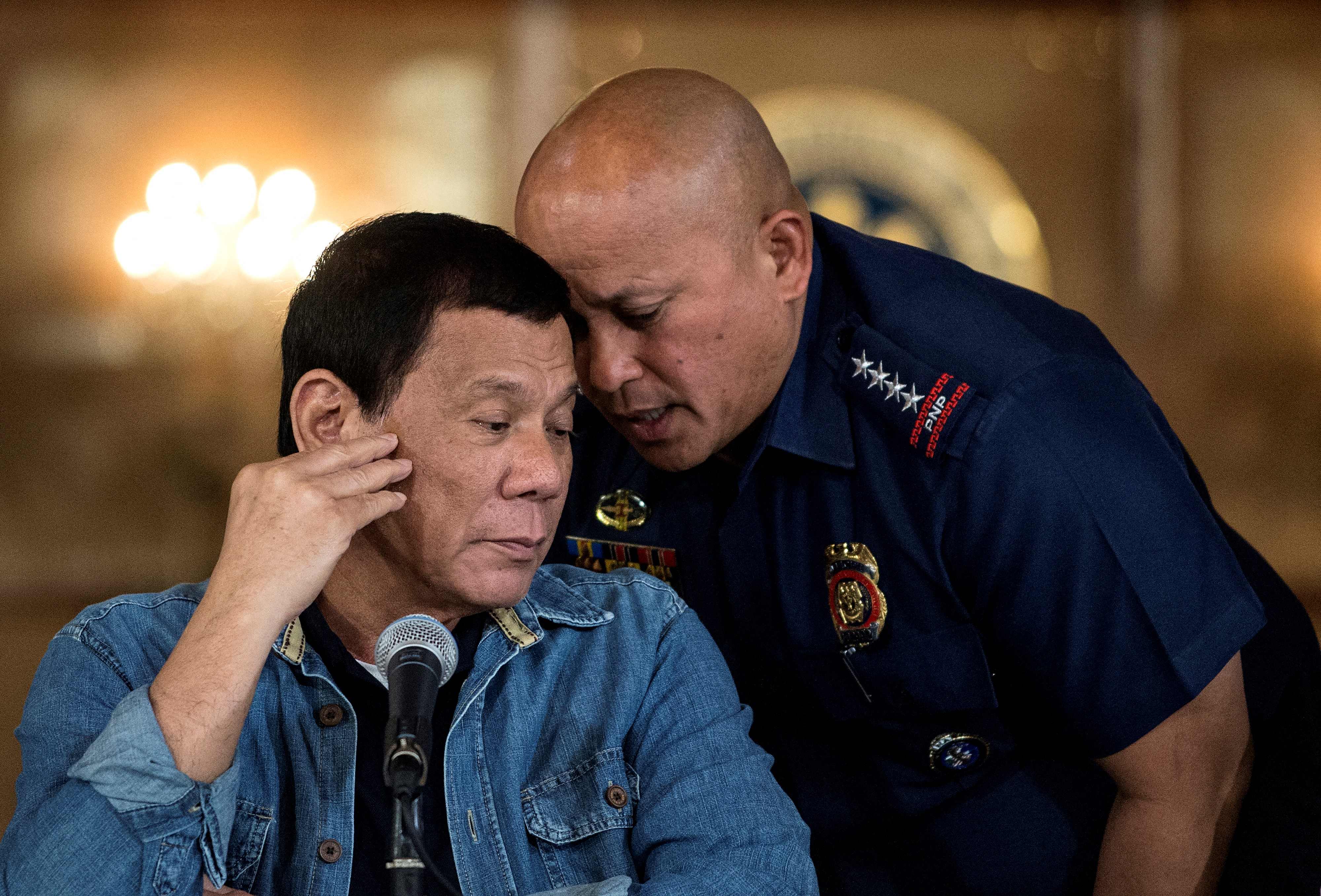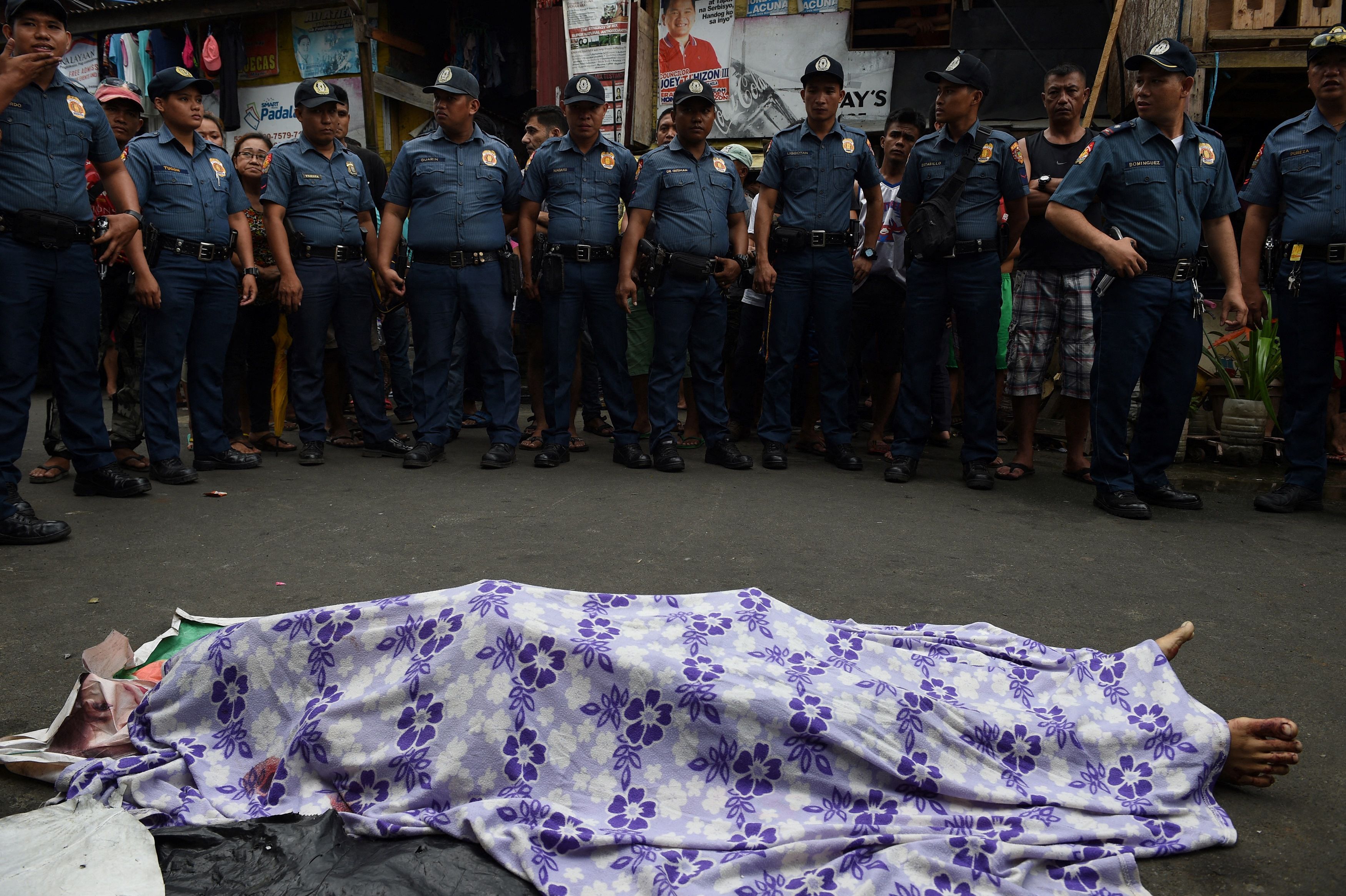Philippines’ Duterte will ‘die first’ before facing ICC over humanitarian crimes allegations
Duterte government refused cooperation with probe but ICC said it had jurisdiction

Your support helps us to tell the story
From reproductive rights to climate change to Big Tech, The Independent is on the ground when the story is developing. Whether it's investigating the financials of Elon Musk's pro-Trump PAC or producing our latest documentary, 'The A Word', which shines a light on the American women fighting for reproductive rights, we know how important it is to parse out the facts from the messaging.
At such a critical moment in US history, we need reporters on the ground. Your donation allows us to keep sending journalists to speak to both sides of the story.
The Independent is trusted by Americans across the entire political spectrum. And unlike many other quality news outlets, we choose not to lock Americans out of our reporting and analysis with paywalls. We believe quality journalism should be available to everyone, paid for by those who can afford it.
Your support makes all the difference.Philippines president Rodrigo Duterte’s administration has strongly opposed the International Criminal Court’s authorisation to investigate allegations of crime against humanity in his violent “war on drugs.”
Mr Duterte’s spokesman, Harry Roque, on Thursday said that the president was unfazed by the court’s decision to open a probe, but said he would prefer to “die first” if investigations are pursued.
"The president didn’t have any reaction, because from the get go, he has said that he’ll die first before he faces any international courts," Mr Roque told reporters.
"If there are any complaints, they should file it here in the Philippines."
The president’s chief legal adviser Salvador Panelo condemned the decision of ICC in scathing remarks and denied cooperating with a formal investigation.
Mr Panelo alleged the courts are "being utilized as a political and propaganda apparatus by those usual suspects who will do anything to dethrone the president from his seat."
"While we expect that more theatrics will be employed by the detractors of the president as election season draws near, this blatant and brazen interference and assault on our sovereignty as an independent country by the ICC is condemnable," he said in a written statement.

The pushback came after the judges at the ICC authorised investigations against Mr Duterte for ordering what he’s called "a war on drugs," a campaign that rights group estimate has killed tens of thousands of people, committing systematic attacks on civilians.
According to the government, more than 6,000 drug suspects were killed by police in the first six months of his presidency. But the rights group says the death toll is a conservative figure and it could be higher if they included many unsolved killings by motorcycle-riding gunmen who may have been deployed by police.
The judges in the ICC’s pre-trial chamber said that “so-called ‘war on drugs’ campaign cannot be seen as a legitimate law enforcement operation, and the killings neither as legitimate nor as mere excesses in an otherwise legitimate operation”.
Mr Panelo told local radio DZBB that the government will not allow the ICC to conduct the investigation as the Philippines is no longer a member of the ICC and it has no jurisdiction over its matters.
"The government will not let in any ICC member to collect information and evidence here in the Philippines, they will be barred entry," Mr Panelo added.
Mr Duterte withdrew the country’s membership from ICC after a prosecutor of the ICC applied to open a full investigation into the alleged war killing. Manila pulled the membership in 2018 which came into effect after 12 months under the court rules.
But the ICC and observers have argued that it had jurisdiction as the crimes were committed during the period when the Philippines was still a member.
Carlos Conde, senior Philippine researcher for Human Rights Watch, said the ICC is well within its rights to investigate Mr Duterte’s actions.
Mr Duterte announced earlier this month that he will run as vice president after he was constitutionally prohibited from running for another term as president in the next election. It was, however, viewed as a tactic by critics to insulate him from investigations and retain power.
Mr Conde said that Mr Duterte‘s run for vice president does "not in any way afford him immunity from suit or investigation by the ICC."
The president is infamously known to have cheered many of the deaths of mostly poor drug suspects but denied condoning their extrajudicial killings.
“Throughout his tenure as mayor, a central force of his efforts was fighting crime and drug use, earning him the nicknames ‘The Punisher’ and ‘Duterte Harry’ for the violent manner in which he sought to combat crime,” former prosecutor Fatou Bensouda wrote in a court filing previously.
“On multiple occasions, Duterte publicly supported and encouraged the killing of petty criminals and drug dealers in Davao City.”
Previously, the ICC decided not to pursue investigations into alleged crimes committed by China against Uyghur muslims and other minorities as it is a non-member . The US and Russia are also notable non-members of the ICC.
Join our commenting forum
Join thought-provoking conversations, follow other Independent readers and see their replies
Comments